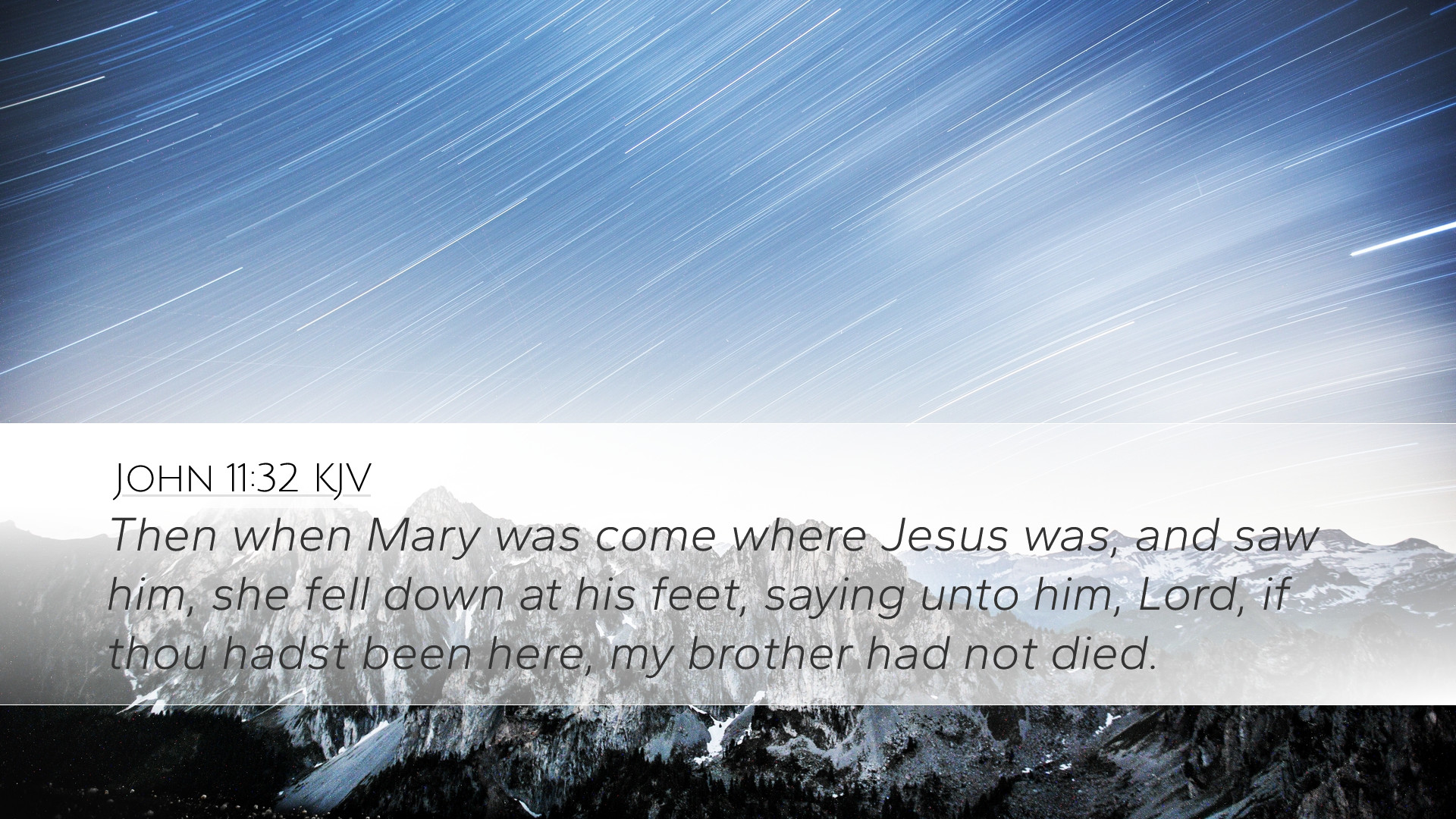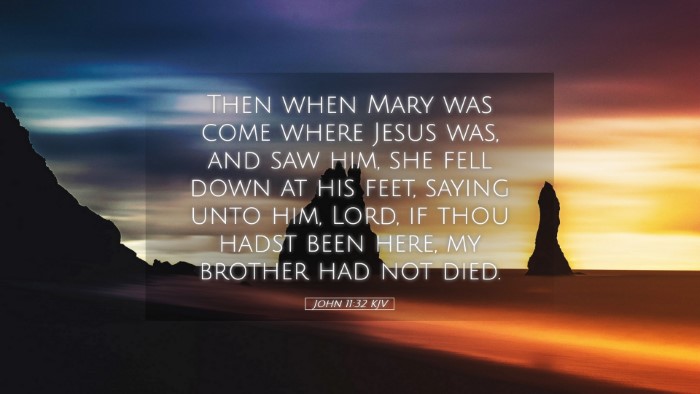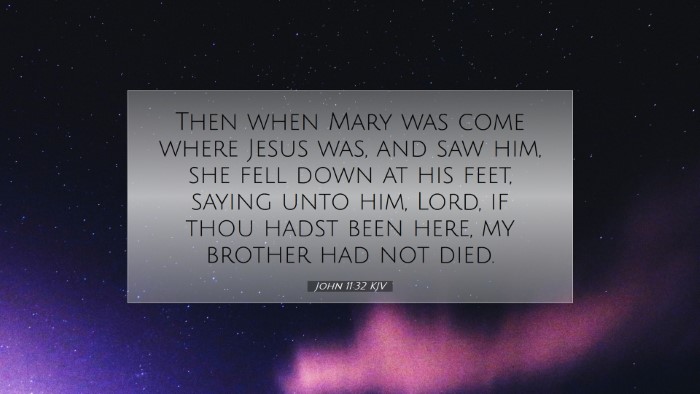Old Testament
Genesis Exodus Leviticus Numbers Deuteronomy Joshua Judges Ruth 1 Samuel 2 Samuel 1 Kings 2 Kings 1 Chronicles 2 Chronicles Ezra Nehemiah Esther Job Psalms Proverbs Ecclesiastes Song of Solomon Isaiah Jeremiah Lamentations Ezekiel Daniel Hosea Joel Amos Obadiah Jonah Micah Nahum Habakkuk Zephaniah Haggai Zechariah MalachiVerse
John 11:1 John 11:2 John 11:3 John 11:4 John 11:5 John 11:6 John 11:7 John 11:8 John 11:9 John 11:10 John 11:11 John 11:12 John 11:13 John 11:14 John 11:15 John 11:16 John 11:17 John 11:18 John 11:19 John 11:20 John 11:21 John 11:22 John 11:23 John 11:24 John 11:25 John 11:26 John 11:27 John 11:28 John 11:29 John 11:30 John 11:31 John 11:32 John 11:33 John 11:34 John 11:35 John 11:36 John 11:37 John 11:38 John 11:39 John 11:40 John 11:41 John 11:42 John 11:43 John 11:44 John 11:45 John 11:46 John 11:47 John 11:48 John 11:49 John 11:50 John 11:51 John 11:52 John 11:53 John 11:54 John 11:55 John 11:56 John 11:57

